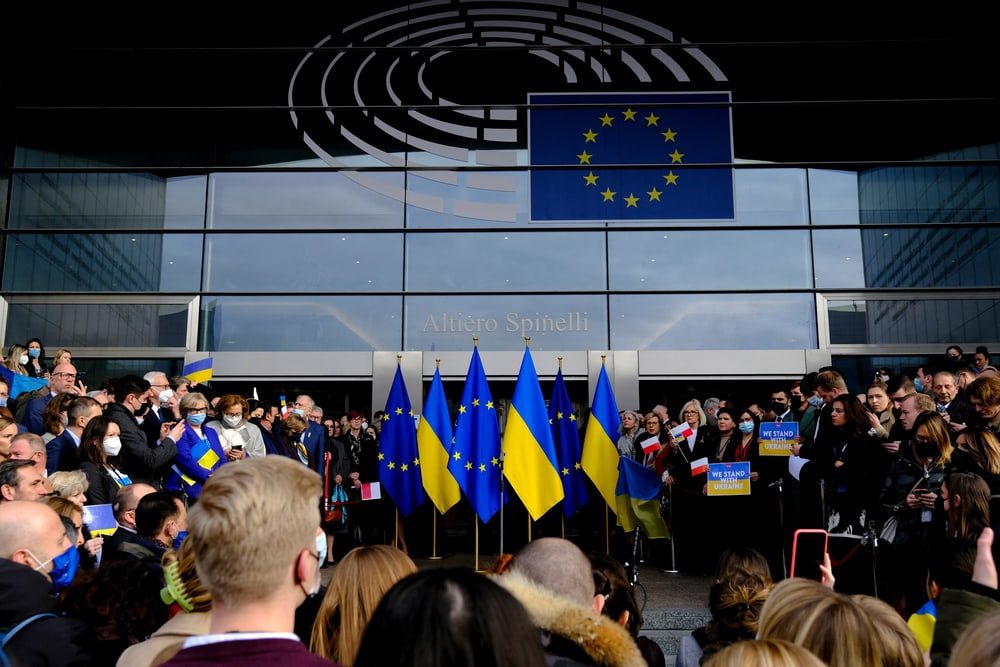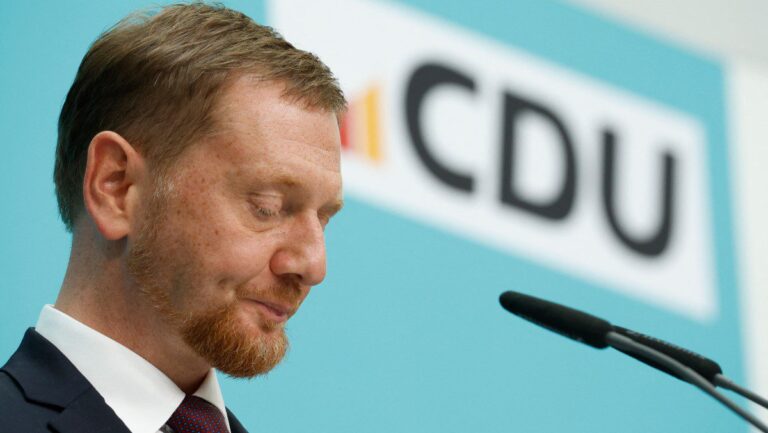On February 28th, Ukrainian President Volodymyr Zelensky submitted his country’s application to join the European Union—a symbolic gesture in reaction to its conflict with Russia. The idea would be to give Ukraine a special fast-track procedure to validate Ukraine as a European anchor against its Russian neighbour.
Nine EU member states have officially given their support to this approach. A first letter signed by the leaders of eight countries (Bulgaria, Czech Republic, Estonia, Latvia, Lithuania, Poland, Slovakia and Slovenia) appeared in the Polish press. Hungary later joined the process with a statement by the Hungarian Foreign Minister.
Czech Prime Minister Petr Fiala argued that the urgency of the situation was a way to bypass the usual accession rules and speed up the process: “Here and now it is a matter of making it clear in this atypical situation that we support Ukraine, that these people are close to us and that we want to do something for them….They need to know that they are our friends and that we care about them.” Czech Interior Minister Vít Rakušan called for a special status for Ukraine similar to that of Norway.
Slovak President Zuzana Čaputová stated on her Twitter account that “Ukraine is Europe.”
#Ukraine is #Europe. And it should be in the #EuropeanUnion too. I endorse President @ZelenskyyUa’s call for the #EU to make a decisive step towards #Ukraine’s EU membership. The time is now. #WeStandWithUkraine
— Zuzana Čaputová (@ZuzanaCaputova) February 28, 2022
As for Poland, its President Andrzej Duda spoke out in favour of accession, and his approval for granting Ukraine funds for reconstruction.
The move by these Central European leaders follows a letter published in the French newspaper Le Monde on 24 February 2022, and signed by 122 politicians and leaders in favour of Ukrainian membership. The letter was then circulated by an international petition on the change.org website, where it gathered around 200,000 signatures. The petition recalls the stages of Ukraine’s European journey from the time of the revolution in 2014, during which President Yanykovych was removed from office.
European Commission President Ursula von der Leyen also welcomed the Ukrainian request. “They belong to us. They are one of us and we want them in,” she explained in an interview with Euronews.
However, despite the general consensus, Ukraine’s accession will not be instantaneous. The first obstacle lies in the necessary unanimity of all members in favour of accession. The second obstacle lies in Ukraine’s ability to meet the accession criteria on all issues: fundamentals; internal markets; competitiveness and inclusive growth; green agenda and sustainable connectivity; resources, agriculture and cohesion, and external relations.
On average, the accession process takes 4.5 years. Austria, Finland, and Sweden took only two years, while Croatia, the last state to join the EU, took eight years to complete.
The European Union is not NATO, but the move, while undoubtedly symbolically effective, could further aggravate tensions between Russia and the rest of the European continent. Not all current EU member states are in favour of Ukraine’s arrival. German Foreign Minister Annalena Baerbock (Greens), while explicitly recognising that “Ukraine is part of Europe,” expressed reservations about Ukraine’s rapid accession to the EU. “Joining the European Union is not something that can be done in a month,” she said. Dutch Prime Minister Mark Rutte also expressed his scepticism in Parliament: he believes that the topic is “not a good discussion” to have right now, a view also shared by the President of the European Council Charles Michel. According to him, “membership is a long-standing request from Ukraine.” No decision should be taken as long as Europe is on the brink of a general war.





